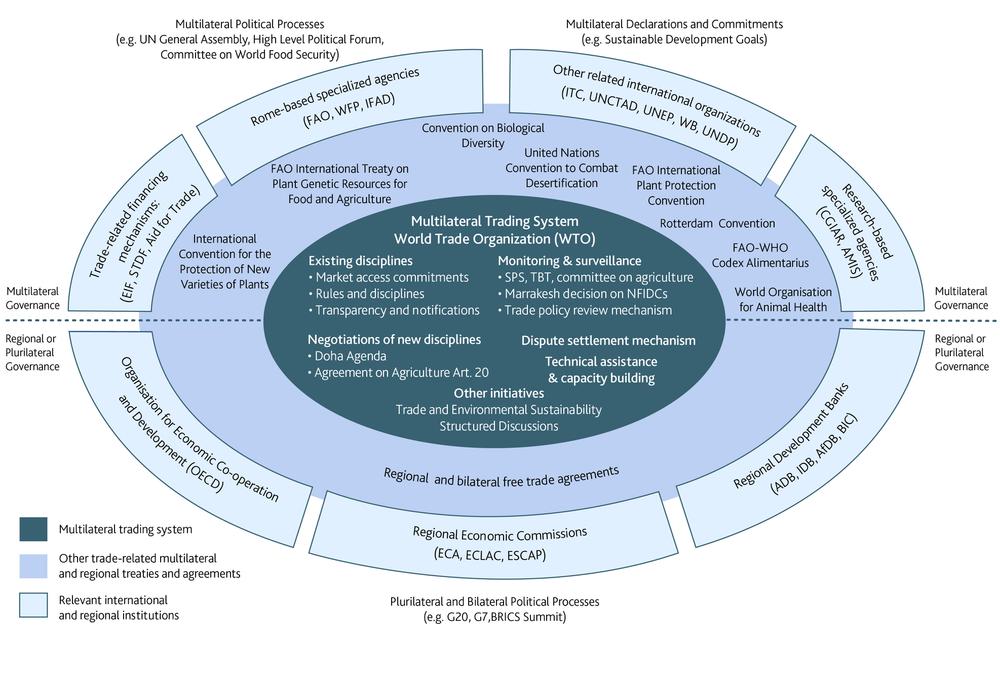With the number of people affected by hunger worldwide estimated between 720–811 million, the agricultural sector is failing to deliver food and nutrition security for all. At the same time, the sector contributes to environmental degradation and represents a high share of global greenhouse gas emissions. Meanwhile, hundreds of millions of farmers around the world rely on the agricultural sector for their livelihoods. Yet sensible agricultural practices can foster the sustainable use of natural resources and ecosystem protection. The challenge is to improve production of and access to food in a way that protects the environment, improves livelihoods, and supports sustainable development. International trade and trade policies are important factors in this equation.
This policy brief explores the complex relationship between trade, trade policies, and sustainability in the agricultural sector in light of the challenges facing the global food system and the environment. The author reviews a range of options for harnessing trade policies to promote sustainable agricultural production and trade, and to discourage unsustainable practices, in the context of the rules and functions of the World Trade Organization. He also identifies opportunities to strengthen a focus on sustainability in agricultural trade in the WTO’s negotiating agenda as well as its regular committees, and highlights the opportunities to harness deliberative platforms like the Trade and Environmental Sustainability Structured Discussions to explore opportunities for multilateral cooperation.
Multilateral Trade and Agriculture Governance

Multilateral Trade and Agriculture Governance
A core challenge for international cooperation is how to ensure that trade and trade policies support sustainable production and access to food in ways that protect the environment, improve livelihoods, and promote sustainable development.
Christophe Bellmann
Recommended citation: Bellmann, C. (2022). Trade and sustainability in the agriculture sector: Options for multilateral trade cooperation. Forum on Trade, Environment, & the SDGs (TESS).

